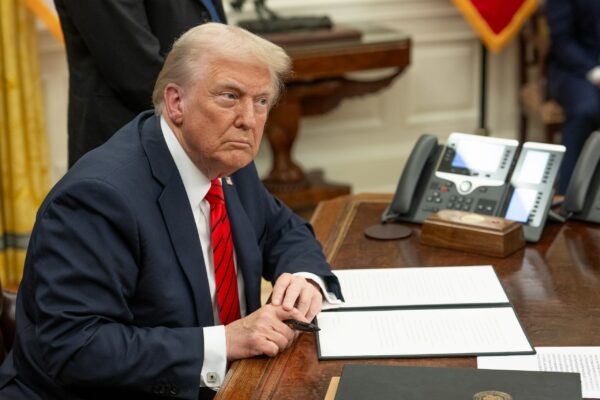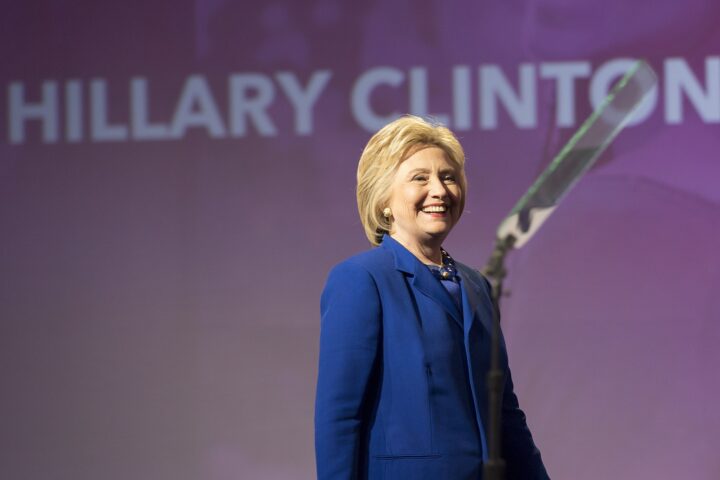In a late-night session that nearly collapsed under mounting pressure over the Jeffrey Epstein files, House Republicans reportedly succeeded in passing President Donald Trump’s $9 billion rescissions package—marking a significant victory for fiscal conservatives long intent on slashing foreign aid and defunding politicized public broadcasting.
The bill passed 216–213, with only two Republicans—Reps. Mike Turner of Ohio and Brian Fitzpatrick of Pennsylvania—voting against the measure.
With the Friday deadline looming, GOP leadership managed to hold the line after hours of tense debate and delays stemming from a bipartisan push to unseal long-withheld Epstein documents.
At the heart of the bill is a sweeping $8 billion rollback in foreign assistance programs, including funding for USAID—long criticized by conservatives for sending taxpayer dollars abroad while domestic challenges grow at home.
The legislation also slashes $1 billion from the Corporation for Public Broadcasting, jeopardizing funding for NPR and PBS, two outlets that have drawn fire from Republicans for what they say is a consistent left-leaning editorial bias.
Trump, never one to downplay a legislative victory, took to Truth Social in the early hours of Friday morning to celebrate the vote:
“HOUSE APPROVES NINE BILLION DOLLAR CUTS PACKAGE, INCLUDING ATROCIOUS NPR AND PUBLIC BROADCASTING, WHERE BILLIONS OF DOLLARS A YEAR WERE WASTED. REPUBLICANS HAVE TRIED DOING THIS FOR 40 YEARS, AND FAILED….BUT NO MORE. THIS IS BIG!!!” he wrote.
The measure marks one of the most aggressive cost-cutting efforts passed under Trump’s renewed leadership.
For decades, conservatives have pushed for an end to what they see as reckless foreign expenditures and ideological subsidies in the form of public broadcasting dollars.
With this vote, the GOP has shown it is prepared to make good on that promise.
House Speaker Mike Johnson, speaking just after midnight, hailed the narrow passage as a “delight,” emphasizing that the bill would be swiftly signed by President Trump. But the road to victory was anything but smooth.
The vote was delayed for hours as lawmakers from both sides of the aisle demanded action on the sealed Epstein files.
Democrats backed a bipartisan amendment requiring the Justice Department to release all documents within 30 days—a move Republicans largely saw as political theater.
Seeking to temper unrest among his base, Trump announced during the standoff that he had instructed Attorney General Pam Bondi “to produce any and all pertinent Grand Jury testimony, subject to Court approval” regarding the case against Jeffrey Epstein.
The announcement followed renewed media interest sparked by the publication of a 2003 letter Trump allegedly wrote to Epstein, which Trump flatly denounced as a forgery, calling it “fake.”
Despite the distractions, Republicans ultimately delivered a message of fiscal discipline and domestic prioritization.
With foreign aid trimmed and funding pulled from public broadcasters that have lost public trust among many conservatives, the rescissions package represents a pivot toward financial realism and government accountability.
Whether Democrats continue using the Epstein issue to muddy the waters remains to be seen, but for now, Trump and House Republicans are touting the night as a decisive step forward.
[READ MORE: California Democrats Set Sights on Mid-Decade Redistricting to Gain House Seats]








